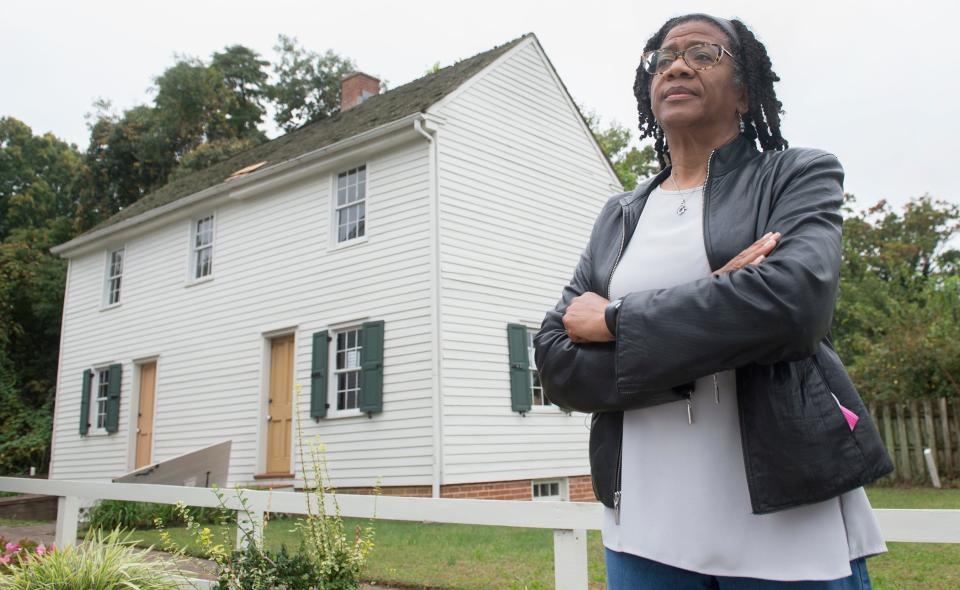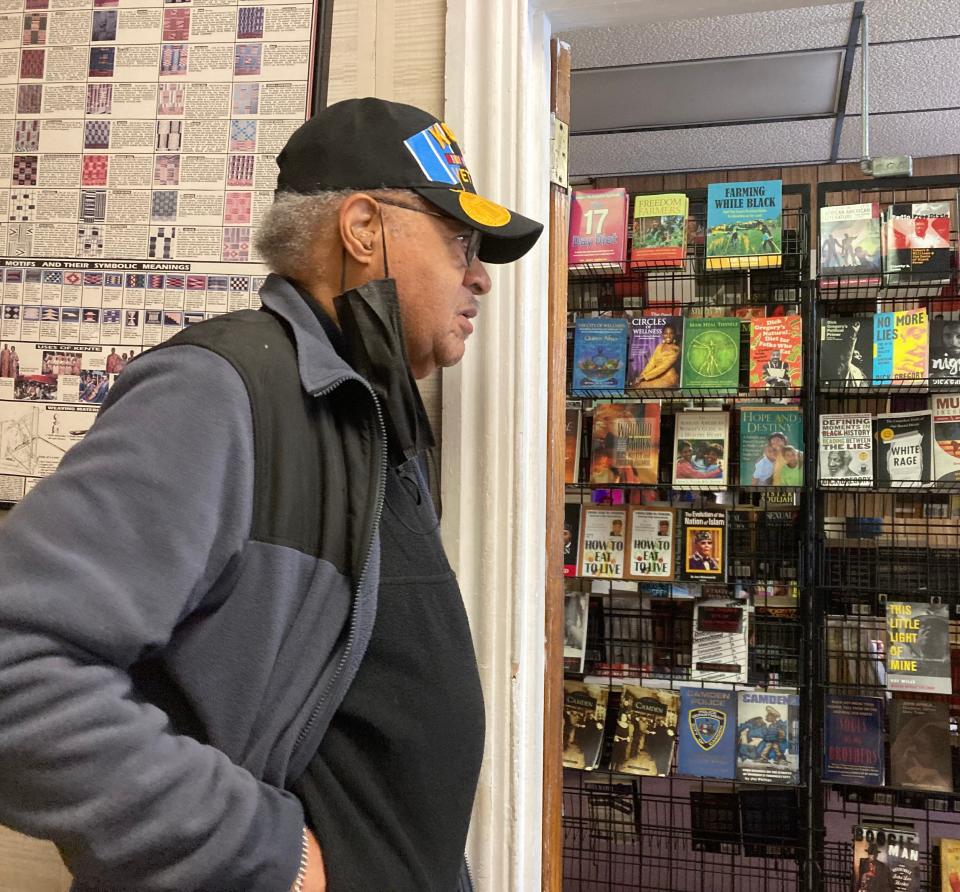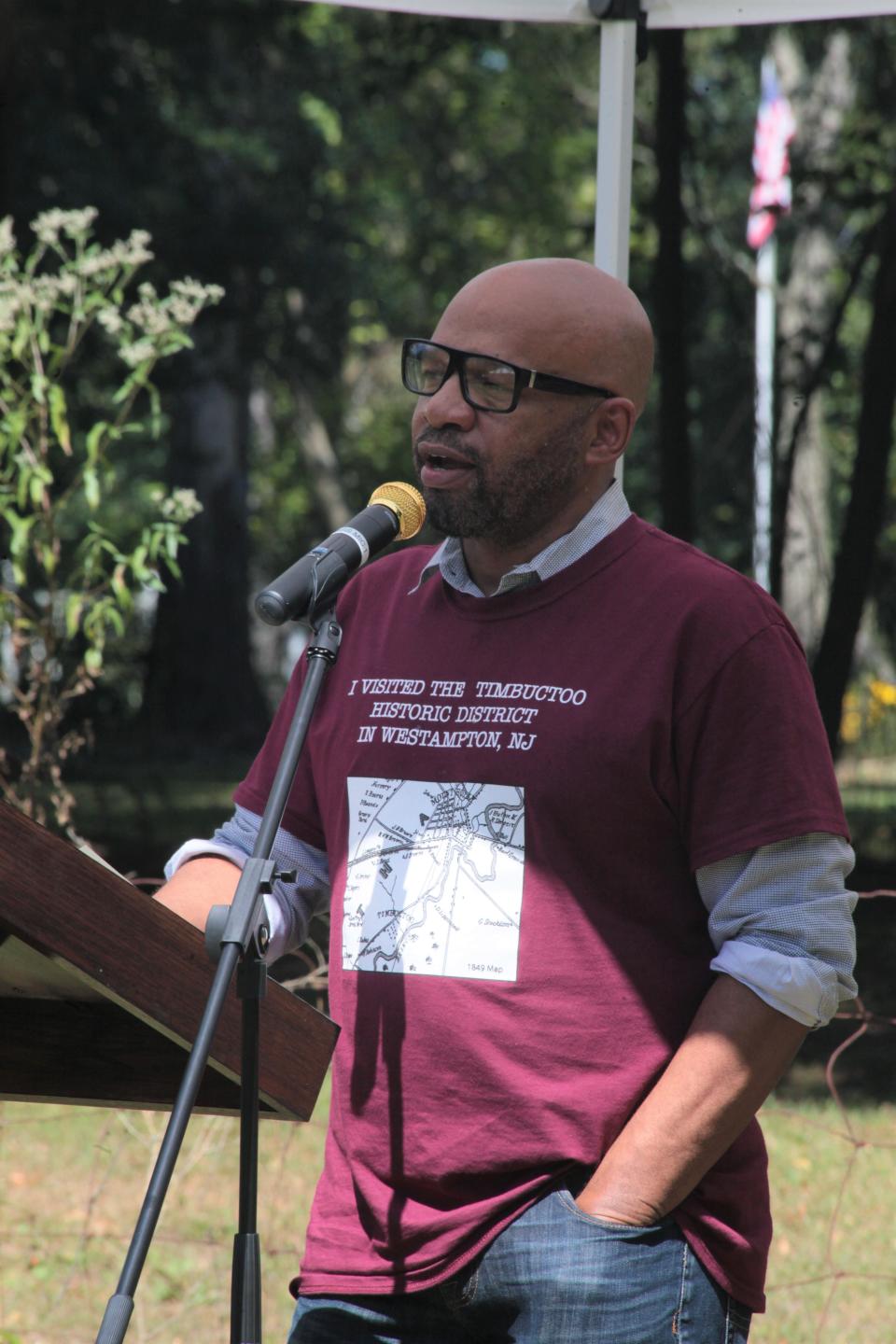South Jersey people and places to know for Black History Month
If you're not familiar with Black history, you're not familiar with American history.
Fortunately for those of us in South Jersey, there are several sites where you can learn more about Black history, and a host of people who are happy to teach anyone willing to learn.
Here are some of the people and places we've profiled over the years.
The People

Linda Shockley is a former journalist and president of the Lawnside Historical Society. She was raised in the small Camden County borough, founded as a haven for freeborn and formerly enslaved Black people. She told the Courier-Post last year that she found her own education lacking in Black perspectives, and knew she wanted the next generation of students to have a more complete understanding of history.

Larry Miles owns La Unique Books and Cultural Center in downtown Camden, but he's so much more than a bookseller and his shop is so much more than a place to buy books. Miles has an impressive collection of African art and artifacts and an even more extensive knowledge of Black history, culture and literature.
From 2022:Not teachers, but they work hard to fill the gaps about South Jersey's Black history

Guy Weston traces his roots to a place called Timbuctoo, a site in Burlington County settled by free and formerly enslaved Black people. A healthcare consultant by trade, he's made it his personal mission to research Black genealogy and history, and to share what he's learned.
Sam Still comes from a long line of accomplished people: He's a member of the Still family, which includes noted 19th century writer and abolitionist Dr. William Still; Peter Still, a man born into slavery who purchased his freedom; and James Still, the famed "Black doctor of the Pines." Sam Still is chair of the Dr. James Still Center in Medford, dedicated to preserving the legacy of an extraordinary man and his extended family.
Debbie Price walked from Cape May to Burlington City last year, all in the name of raising awareness of how enslaved people journeyed to freedom. The 165-mile trek took her and her walking partner, Kenneth Johnston, several weekend days, and even though the 67-year-old Price said it was a challenge, especially early on, it was nothing compared to what the people who came before her did. Inspired by a shoe fragment found at an archaeological dig at Timbuctoo ("There's a soul within this sole; there's a story behind it," she explained), Price recalled that many people fleeing slavery did so "without shoes, without coats, without stores along the way, and in fear for their very lives." The Willingboro resident works with the Burlington County Underground Railroad Museum and is currently planning another walk this year.
The Places
History needs help:Lawnside's Peter Mott House, Underground Railroad site, needs funds, repairs
The small Camden County borough of Lawnside has a few sites worth visiting: It's home to a handful of historically significant sites, including the Peter Mott House, Mount Pisgah AME Church and Mount Peace Cemetery, a resting place for 77 Civil War veterans and a place for Blacks to be buried at a time when they were often excluded from white cemeteries, segregated in death as they often had been in life.
Mount Peace:This South Jersey abolitionist, Civil War soldier is finally getting national recognition
Jacob's Chapel in Mount Laurel is listed on the National Register of Historic Places. Built in 1867 as an African Methodist Episcopal Church, the chapel is one of three structures on the Elbo Lane parcel, which also includes a meetinghouse and cemetery where Dr. James Still, the "Black Doctor of the Pines," is buried.
Hidden history:MLK Jr.'s 'first' civil rights protest and other hidden Black history in South Jersey

Visitors to Cape May can take in a lot of history, from its Victorian homes to its charming downtown. But one of its most important historical sites is the Harriet Tubman Museum, which opened in 2021. The famed emancipator lived in Cape May in the early 1850s as she worked to fund her efforts. The site, formerly a parsonage for a Baptist church, is at Lafayette and Franklin streets, where several abolitionists once lived and worked. The home of Stephen Smith, considered at the time the wealthiest Black man in America, is also nearby.
From 2021:Harriet Tubman's legacy inspires a new museum in Cape May, NJ
The Burlington County Underground Railroad Museum occupies a restored duplex in the county's Smithville Park, a former industrial village which is now part of a sprawling park with trails, historic sites and picnic areas. The museum at 803 Smithville Road in Eastampton has documents, newspaper articles, artwork, photos, posters and more telling stories of slavery, the struggle for emancipation and, eventually, freedom.
Trail to trace Black history in NJ:South Jersey lawmaker's proposal for Black Heritage Trail signed into law
Tucked into the Noyes Museum in Atlantic City, the African American Heritage Museum of South Jersey holds a collection originally started by Ralph Hunter, the museum's founder, including antique and contemporary works of art, artifacts and media that reflect the Black experience in America. The museum's collection includes the good (quilts, paintings and antique photographs); and the bad (images that reflect stereotypes of Black people through the years, like Buckwheat, Little Black Sambo and Amos & Andy).
Phaedra Trethan has been a reporter and editor in South Jersey since 2007 and has covered Camden and surrounding areas since 2015, concentrating on issues relating to quality of life and social justice for the Courier-Post, Burlington County Times and The Daily Journal. She's called South Jersey home since 1971. Contact her with feedback, news tips or questions at ptrethan@gannettnj.com, on Twitter @wordsbyPhaedra, or by phone at 856.486-2417.
Help support local journalism with a digital subscription.
This article originally appeared on Cherry Hill Courier-Post: South Jersey Black history: People and places that tell the story

